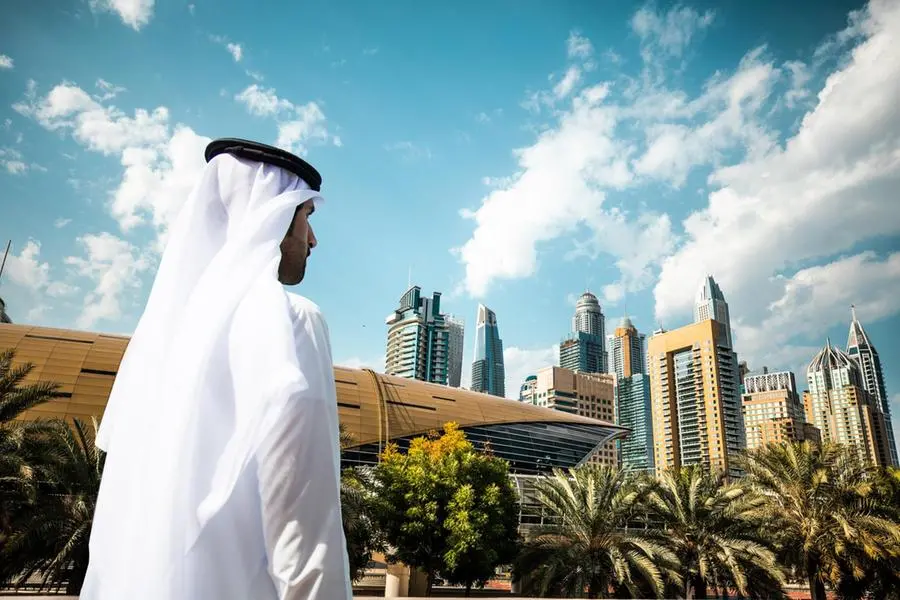PHOTO
Dubai, UAE – Global consultancy Kearney has released its latest report, Nexus Point: The Middle East at the Center of Global Change, highlighting six global forces of change facing the region through 2030 – and how decisions in the region will shape the global trajectory of those forces. As geopolitical realignments, economic fragmentation, and climate shifts accelerate, the Middle East is leveraging bold diplomacy, disciplined economic policy, and technological innovation to emerge as a key architect of the world’s future.
The report outlines six key forces driving global change - geopolitical entropy, geoeconomic fragmentation, atomizing climate response, macroeconomic divergence, reweaving of the social fabric, and accelerated knowledge creation - and explores how the leading countries of the Middle East are both navigating and shaping these forces.
“The Middle East sits at the very center of this period of intensifying change - geographically and demographically, geopolitically and economically,” said Rudolph Lohmeyer, Senior Partner, Global Business Policy Council & Head of the National Transformations Institute, Part of the Kearney Foresight Network. “Over the next five years, the global forces outlined in this report will increasingly converge on the region, positioning it at as a crucial nexus point of disruptive transformation. The region's leading countries have seen these forces coming - and they have relentlessly prepared. To the extent they succeed in navigating, harnessing, and capitalizing on these forces, not only will they accelerate their own transformations and that of the wider region, but they will also shape the global trajectory of these dynamics in the direction of order, stability, and inclusive progress.”
The Middle East’s growing global influence
According to the report, the Middle East is evolving from a global crossroads into an active architect of change, leveraging its economic strength, strategic investments, and geopolitical influence to shape global markets and policy decisions. The region’s economic transformation is accelerating through diversification strategies including Saudi Arabia’s Vision 2030, the UAE’s AI-led innovation agenda, and Egypt’s infrastructure investments - efforts that are significantly expanding the region’s global economic footprint.
At the same time, the region’s sovereign wealth funds are projected to grow from $4 trillion to $8 trillion by 2030, placing Middle Eastern economies among the world’s most influential financial powerhouses. The region also holds a central position in global trade and energy, with nearly 12% of international trade and 20% of oil supply flowing through its corridors. And with over $75 billion committed to clean energy by 2030 and AI expected to contribute $320 billion to regional GDP, the Middle East is becoming a major force in digital innovation and sustainability.
In addition, the leading countries of the region are driving bold diplomatic innovation to address critical global and regional challenges. This has included efforts to bring Iran and Syria into a new regional security architecture, the formation of regional coalitions to advance solutions to the ongoing crisis in Gaza and recently supporting efforts to broker a ceasefire between India and Pakistan. The global strategic centrality of the region was also on display during U.S. President Donald Trump's May 2025 tour of the area given not just the unprecedented economic and defense agreements reached, but also the deep collaboration on key global and regional diplomatic issues. The visit confirmed the increasingly pivotal role of the region in shaping the future of the international order.
Shaping the Next Era of Global Stability
The report emphasizes that decisions made in the Middle East between now and 2030 will have a profound impact on global geopolitical, economic, social and technological dynamics. In the context of the current historic critical juncture, the region’s ability and intention to foster geopolitical stability, drive inclusive economic growth, fuel transformative innovation, and bridge international divides will be of decisive importance.
The full report Nexus Point: The Middle East at the Center of Global Change is available for download here: Nexus Point: The Middle East at the Center of Global Change
About Kearney
Since 1926, Kearney has been a leading management consulting firm and trusted partner to three-quarters of the Fortune Global 500 and governments around the world. With a presence across more than 40 countries, our people make us who we are. We work impact first, tackling your toughest challenges with original thinking and a commitment to making change happen together. By your side, we deliver—value, results, impact.
Impact First promo video: https://www.youtube.com/watch?v=vAuDz9ZNinI




















